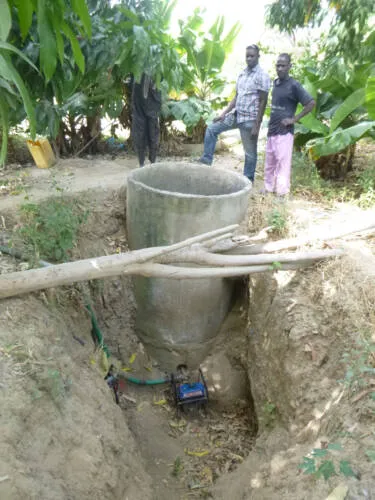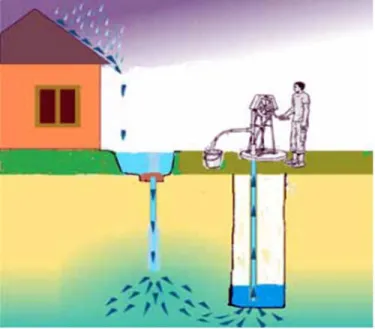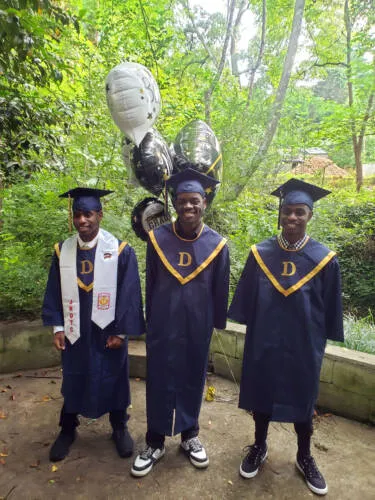Watering the Earth, Restoring God’s People
A Letter from Jim McGill, serving in Niger and South Sudan
Subscribe to my co-worker letters
Dear friends and family,
I began following Sojourner magazine’s monthly devotionals “Living the Word” online last year when former moderator of the PC(USA), Rev. Denise Anderson was a contributing author. The Sunday, July 16th lectionary reading included the following passage from Isaiah 55:

Just as rain and snow descend from the skies
And don’t go back until they’ve watered the earth,
Doing their work of making things grow and blossom,
Producing seed for farmers and food for the hungry,
So will the words that come out of my mouth not come back empty-handed.
They’ll do the work I sent them to do,
They’ll complete the assignment I gave them. (The Message)
This passage caught my attention as our rains here in Niger have just started – and everywhere you look, you witness the work of the rains in making things grow and blossom. Everyone is busy sowing their gardens with the expectation that those seeds will provide the coming year’s sustenance, such that the rains’ assignment will be completed.
Isaiah then continues that just as the rain descends for our provision, so also the Word has been given with a purpose. The wholistic ministry of our partner church, the EERN, hears the call from the Word to invite the stranger in, to clothe those in need, to visit the prisoner. It believes the work they have been sent to do includes looking after the sick, feeding the hungry, and giving drink to the thirsty.
While everyone celebrates the rains and a return to the fields, several problems arise during this time. Surface waters from the rains mean more mosquitos and more malaria. Surface water also creates pathways for water-borne disease transmissions, including typhoid. The rains also are indicative of a time of more hunger, as the harvest from the previous year becomes depleted before this year’s crops are harvested. So, the beginning of the rains also signals a time when illnesses are more prevalent.

However, we know that great problems often allow for great opportunities. I would like to share two recent opportunities for health that are coming through the Evangelical Church in the Republic of Niger’s (EERN) Water, Sanitation and Hygiene Programme (WASH) that could help that Word bring hope to the people of Niger.
One opportunity that can help in feeding the hungry and giving drink to the thirsty is through simple ‘recharge’ technologies that channel rainwater down to replenish aquifers. The people in Niger live in an ecosystem that is named the “Sahel,” a transitional zone between the Sahara Desert to the north and the savannah lands south that receives between 200 to 600 mm (8 to 24 inches) annual rainfall. While this is an adequate amount of water to sustain life within the Sahel, much of that rain runs to seasonal rivers that carry water to the Atlantic or runs to pools where the water evaporates rather than “watering the earth” to be stored in an aquifer and extracted as needed. As it only rains from July to September within the Sahel, people are dependent upon extracting water from aquifers for domestic use and for growing crops. We have been observing areas near Maradi where people must dig deeper every year to access groundwater, indicating that more water is being extracted than being returned. EERN WASH is therefore implementing household recharge wells as part of family-managed water systems and is working with governmental and other organizations to implement sand dams and other recharge systems to ensure that extraction and input are balanced, and water will always be available.

Another opportunity is coming via increased international attention on typhoid, a disease endemic to Niger. Typhoid is spread through contaminated drinking water and food, poor sanitation and hygiene that results from a lack of latrine use, and contaminated surface water. EERN is actively addressing all of these problems through interventions that are foundational to its WASH program. Galmi Mission Hospital, a 180-bed hospital about three hours west of Maradi, has always taken care of patients with typhoid, with too many children who do not survive the disease. Beginning this summer (2023), Galmi Hospital has been added to a University of Maryland research program that is funded by the Gates Foundation and others with the goal of improving typhoid vaccines.
Having heard positive stories resulting from the 1 evangelist/1 well program of EERN WASH, Galmi Hospital approached EERN WASH to ask if we might be able to provide safe water in villages where they are seeing typhoid. In April, Mr. Joel Labo of EERN WASH in Maradi and I were asked to visit with the pastor at Sabon Gida, where, in 2018, Galmi Hospital had drilled a well and installed a solar pump. The pump has disappeared, and the pastor now uses a bailer to draw water from the well – which certainly can be rectified within the scope of the program. But more importantly, it was evident that our WASH programs will certainly reduce incidences of typhoid, while, at the same time, improving livelihoods. The new international focus on an endemic problem of typhoid is opening new opportunities around Galmi that can help fund the WASH programs.
Back in the U.S., I was able to join the family in May for John and Joseph’s high school graduation. It was great to be back together with the family, and we will look forward to the next visit after Thanksgiving.
Thanks, as always, for all of your support, and we continue to pray for peace for each of you and for our world.
Jim
